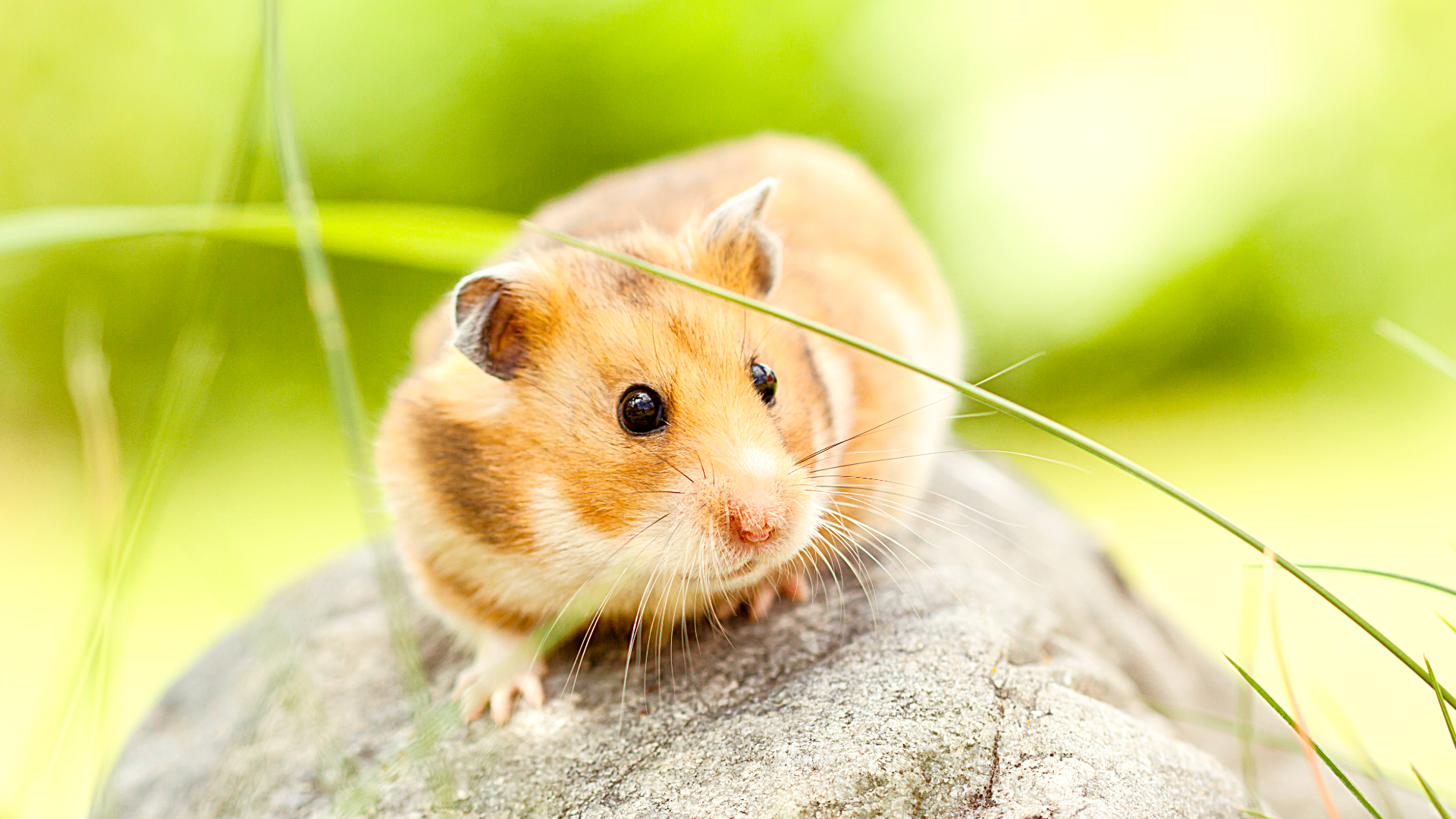Caring for your Syrian Hamster (Teddy Bear)
Syrian Hamster
(Mesocricetus auratus)
Basic Information:
Syrian hamsters, also known as golden hamsters, originate from arid regions of northern Syria and southern Turkey. In the wild, they are solitary burrowers that sleep during the day and become active at dusk. As one of the most popular small mammals in the pet trade, Syrian hamsters are appreciated for their manageable size, low maintenance needs, and gentle temperament when properly socialized. Adults typically reach 5–7 inches in length.
Lifespan:
2–3 years in captivity with excellent care.
Sexing:
Syrian hamsters are sexually dimorphic. Males typically have more prominent scent glands and larger hind ends due to testes, while females have visible nipples and a more streamlined shape.
Enclosure:
Minimum Size: 450 square inches of unbroken floor space (e.g., 30” x 15”) with solid sides and a secure lid
Provide 6+ inches of diggable bedding, a solid-surface running wheel (11–12”), hideouts, tunnels, climbing toys, and chewable accessories. Avoid wire mesh floors or exercise wheels with rungs.
Minimum Size:
At least 7.5 sq. ft. (30” x 36”) for a pair, though larger is strongly recommended (playpen-style enclosures are ideal).
Substrate:
Use paper-based or aspen shavings that are dust-free and non-scented. Avoid cedar and pine, as their aromatic oils are harmful. Spot-clean daily and fully clean the enclosure weekly, preserving a portion of the old bedding to reduce stress.
Lighting & Temperature:
Maintain a 12-hour light/dark cycle using natural room light or indirect lighting.
Ideal room temperature should remain between 65–75°F. Keep the enclosure away from drafts, direct sunlight, heaters, or air vents to prevent stress or illness.
Food:
Feed a high-quality commercial hamster mix or pellet as the dietary base. Supplement with small amounts of fresh vegetables (like carrots, broccoli, or cucumber) and occasional fruits (apple, strawberry).
Avoid citrus, onion, garlic, or anything sugary or sticky. Provide fresh, clean water at all times via a sipper bottle or shallow dish.
Socialization:
Syrian hamsters are solitary and must be housed alone after 6–8 weeks of age. While not social with other hamsters, they can bond well with humans through gentle, consistent handling.
Allow them to wake naturally before handling.
Use a cup or tunnel to safely pick them up at first, then progress to hand-handling sessions.
With their curious nature and relatively simple care needs, Syrian hamsters make excellent pets for responsible children and adults alike. Their independent personalities and nighttime antics are a joy to observe, making them ideal for quiet household.


